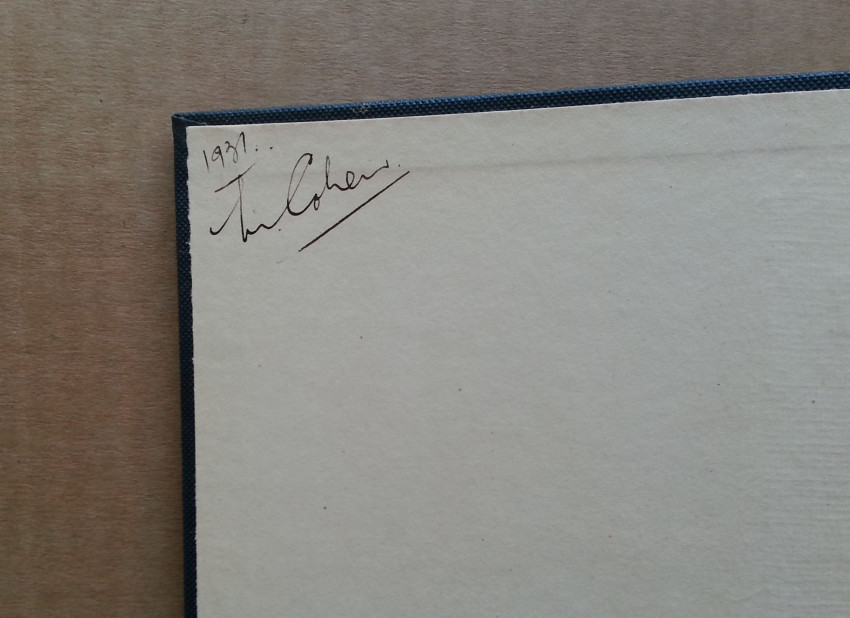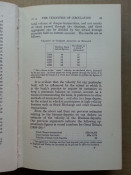London: Macmillan and Co., Limited, 1930
8vo (22,1 x 14 x 3,7cm) viii + 424pp. Original dark blue hardcover binding, with dust jacket. Gilt lettering to spine.
First edition, volume 2 only.
In the Treatise Keynes drew a distinction between savings and investment, arguing that where saving exceeded investment, recession would occur. Thus, Keynes reasoned that during a depression the best course of action would be to promote spending and to discourage saving. Keynes most notably clarified his Theory of Money in catty dialogue with other famous economists of the day, such as Friedrich Hayek and Dennis Robertson. Keynes described his rejoinder as such “in my Rejoinder to Mr. D. H. Robertson, Published in the Economic Journal for September, 1931, I have endeavored to re-state in a clearer way what my own theory actually is.”
In Keynes’ Treatise, he does not agree that booms and busts happen solely because of extrinsic random variables such as “sunspots”. Instead, he believes that economic events emerge when there are discrepancies between savings and investments. According to Keynes, a true measure of a nation's prosperity is not anything of physical value such as gold or silver, but by national income. To him, the most important characteristic of national income is consumption.
In Keynes's Treatise, he explained how recessions could happen, but not long-term depressions. He was able to address this further in The General Theory of Employment, Interest and Money. In his General Theory, Keynes argued against the seesaw theory and said that the economy was more like an elevator that can stop at any level. This is because once the economy reaches the bottom, individuals would have no excess income to save. No savings results in no investment so the economy cannot save itself. Without the savings, there is no pressure to lower interest rates, so there is no incentive for businesses to invest. In his theory on money he asserts that investment is an "undependable drive wheel for the economy," and when no new investment can be found, the economy will begin to falter. (wikipedia.com)
Condition: Dust jacket in fair condition, with rubbing, edgewear and chipping to edges, sunning and a few small stains to spine, and has been covered with a protective Brodart plastic sleeve. Book in very good condition. Very small stains to front board. Light shelfwear to the top and tail of the spine. Previous owner’s signature to front pastedown. A few instances of underlining to text in pencil. One minor stain to top edge of textblock. A well bound copy.
- Jacket Condition: Fair
- Binding Condition: Very Good
- Overall Condition: Very Good
- Size: 8vo
- Sold By: Bookdealers cc
- Contact Person: Doron Locketz
- Country: South Africa
- Email: [email protected]
- Telephone: 0114407936
- Preferred Payment Methods: EFT, Payfast, Credit Card
- Trade Associations: South African Bookdealers Association






























